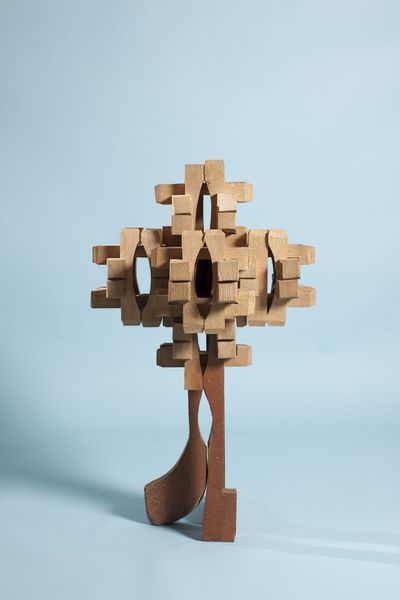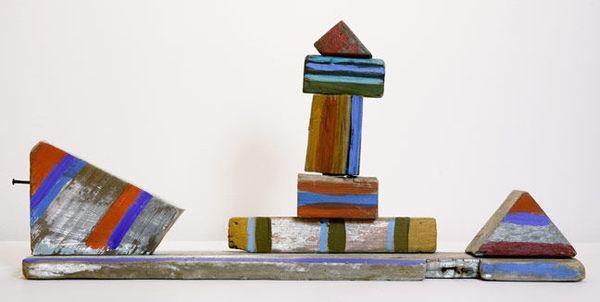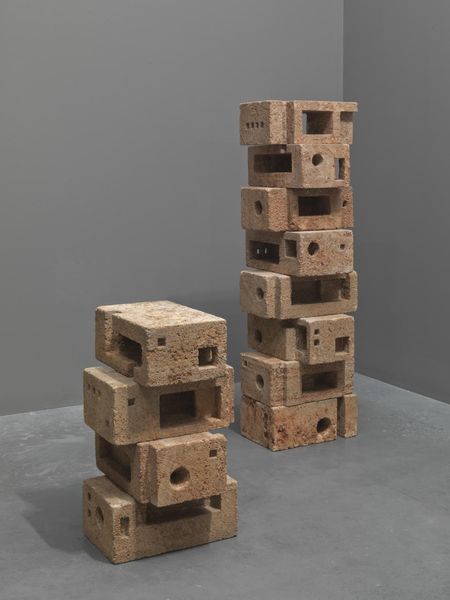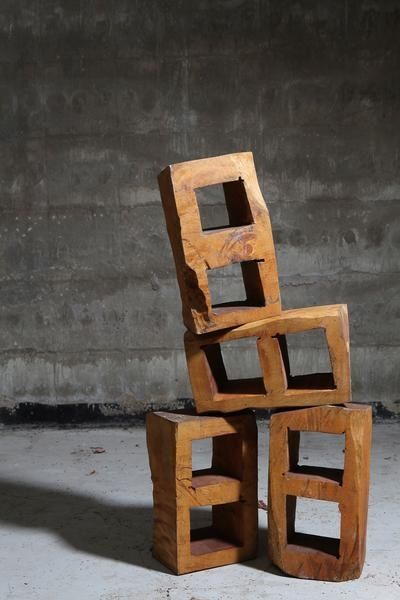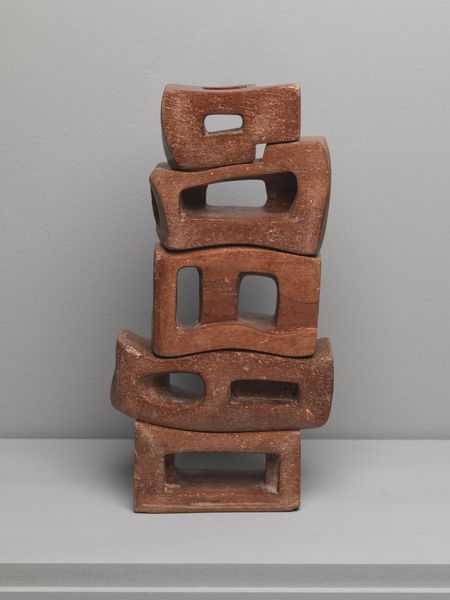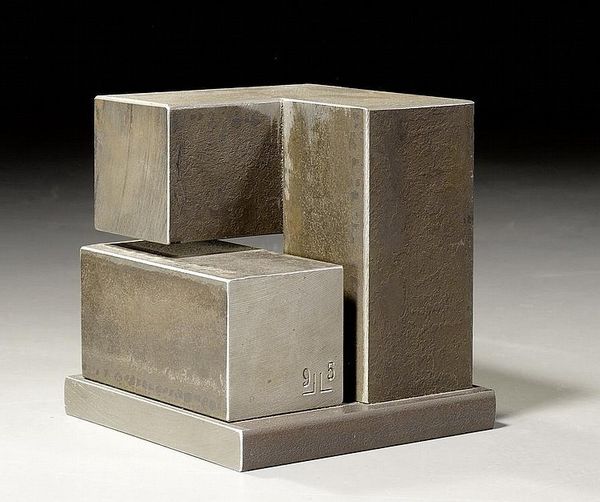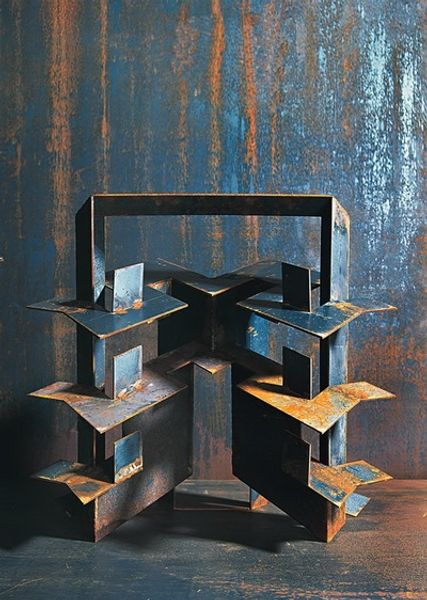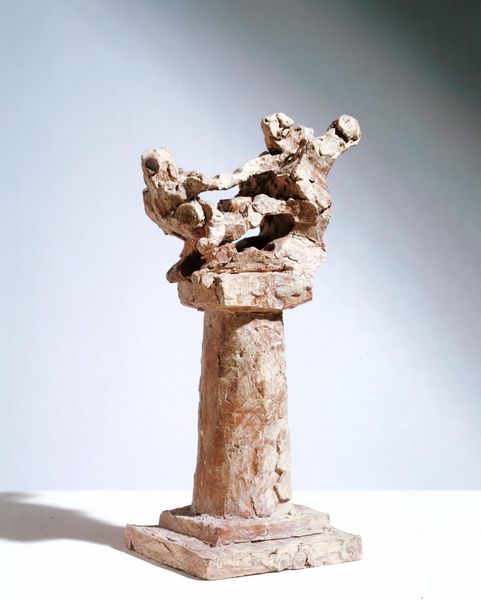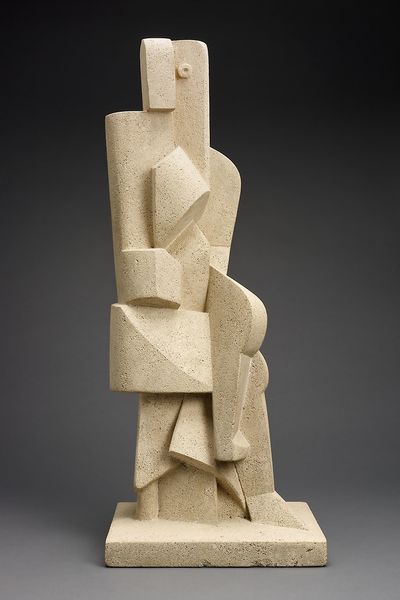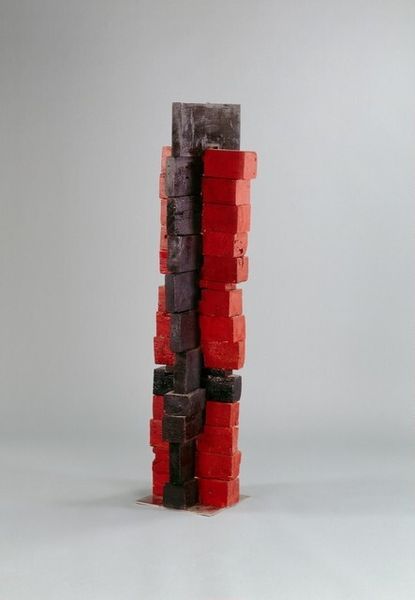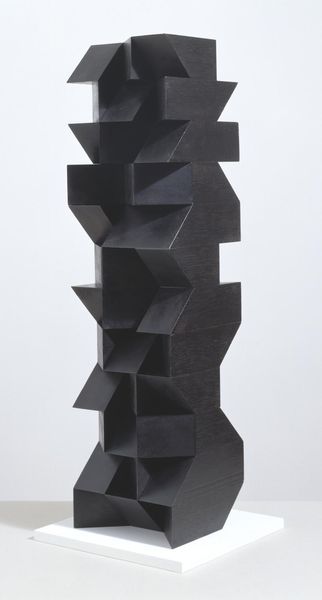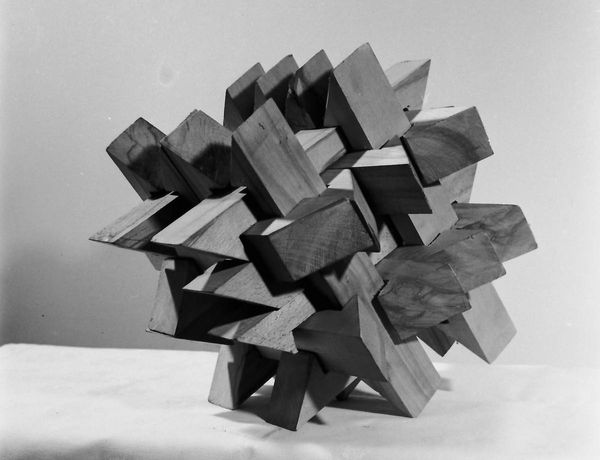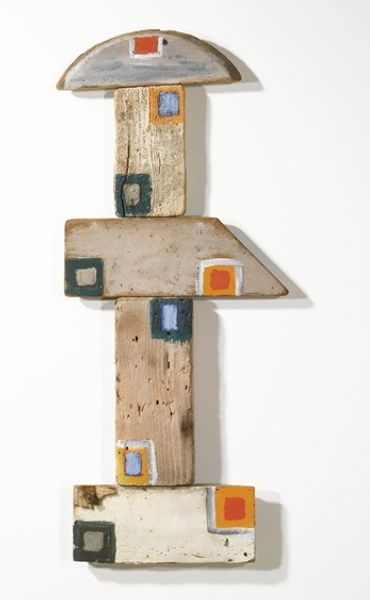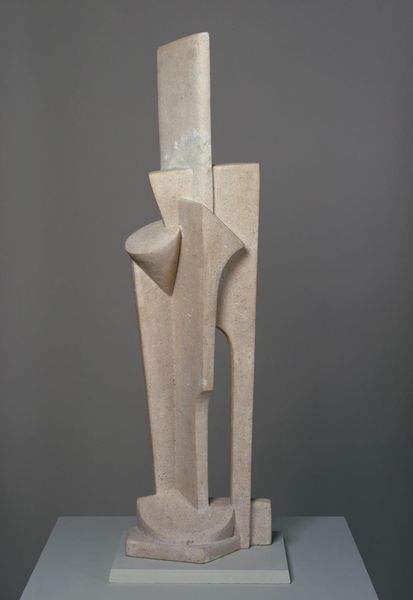
Dimensions: object: 225 x 137 x 137 mm
Copyright: © DACS, 2014 | CC-BY-NC-ND 4.0 DEED, Photo: Tate
Curator: Georges Vantongerloo's small sculpture, "Interrelation of Volumes," presents a fascinating arrangement of geometric forms. Editor: It appears almost architectural, evoking a sense of upward movement, like a minimalist ziggurat. Curator: Precisely. Vantongerloo, deeply invested in geometric abstraction, sought to express universal harmony through mathematical relationships. Each cube and rectangle is carefully considered, creating a dynamic interplay of positive and negative space. Editor: The rough texture seems important as well, offering a subtle contrast to the severe geometric lines, grounding the work in a tactile reality. What role did exhibition spaces play in showcasing these austere works? Curator: Galleries that embraced avant-garde aesthetics were crucial. These spaces became laboratories for exploring pure form and challenging traditional notions of art. It's interesting to consider the object's radical stance for its time. Editor: Indeed, a bold statement on the power of pure abstraction. It still resonates today. Curator: It makes you wonder about the future of such works.
Comments
tate 9 months ago
⋮
http://www.tate.org.uk/art/artworks/vantongerloo-interrelation-of-volumes-t02306
Join the conversation
Join millions of artists and users on Artera today and experience the ultimate creative platform.
tate 9 months ago
⋮
Vantongerloo’s aim was to ‘render visible the beauty of space’. This work is one of his earliest abstract sculptures. It attempts to give solid form to the relationships between pure, geometric shapes. Vantongerloo made contact with the De Stijl group while working in The Hague in 1917. He immediately began experimenting with abstraction. ‘If in sculpture, the interrelation of volumes achieves unity’ he wrote, ‘it is because everything is balanced.’ Gallery label, April 2012
